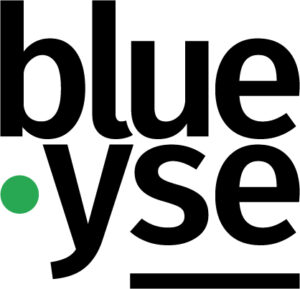
Approximately 2.5 million Dutch people aged 16 and older have difficulty reading, calculating and using a computer or smartphone. Two-thirds of these people are native speakers. About 80% of the low-literate people are close to the second-lowest literacy level. Low-literates have great difficulty in reading and writing. They have problems understanding written information, filling in forms and reading to children. They also do not master the Dutch language at the final level of VMBO or level MBO-2/3. Often their arithmetical skills also lag behind.
Low literacy should not be confused with illiteracy
Low literates are people who can read, write and calculate to a certain degree but have great difficulty exercising these skills in their daily lives. Moreover, Dutch people with low literacy collectively lose millions of euros in income. But low literacy also costs Dutch society over €1.1 billion annually.
| Social costs, by category, in millions of euros | |
| Loss of income for low-literate people | 572 |
| Higher health care costs | 257 |
| Greater reliance on social security | 117 |
| More poverty | 95 |
| Missed tax revenues | 80 |
Intangible effects
In addition to the material impact of low literacy, the lack of language and numeracy skills also has intangible effects. Low literacy affects the social cohesion of a society. Research shows that people with low literacy levels are less likely to volunteer and have less confidence in their fellow human beings and society. Moreover, people with low literacy and numeracy skills are more likely to feel powerless regarding their influence on the government.
Low literacy arises from various circumstances
Older people do not always finish school because the financial situation at home forces them to work at a young age. Also, in school, there used to be less attention to students who had difficulties with reading and writing. Some people miss out on education because of illness, truancy, a physical disability, or a travelling lifestyle. And some people grew up in a poor language environment or people who had to deal with a problematic home situation. Furthermore, people with general learning and behavioural problems, such as difficulty concentrating and a lack of discipline, are at greater risk. This also applies to people with dyslexia or a language deficiency.
Equal starting opportunities are essential
To prevent low literacy and reduce disadvantages, equal starting opportunities are crucial. According to SLO (the national expertise centre for the curriculum), the differences in literacy are significant in early and pre-school education. For example, in vocabulary. In primary and secondary education, many pupils have insufficient motivation to read and little confidence in their reading performance. The problems are most significant at vmbo: weak readers only read compulsory material and little or no fiction.
The consequences of low literacy
In everyday life, people often have to read, write, do math or deal with the computer. Our society is becoming increasingly digital, and lacking these skills can have significant disadvantages. For example:
– problems with communication
– difficulty finding or keeping a job
– more frequent health problems
– language deficits among parents and their children
– difficulties in voting for political parties (complex language)
Low literates are dependent on others and frequently suffer from psychological problems. There is a lot of shame, and many of them suffer a withdrawn existence as a result. Because of their difficulties with written communication, their self-sufficiency is limited. Avoidance, denial or compensatory behaviour often arise.
Government tackles low literacy
The central government offers help to tackle low literacy. Via the Tel mee met Taal subsidy scheme, subsidies are available until 2024. The support applies to activities aimed at preventing and reducing low literacy. The grant is available for low-literate employees, low-literate parents and practice-based experiments.
Sources
2.5 million Dutch low-literates miss out on €572 million in revenue: https://www.consultancy.nl/nieuws/17517/25-miljoen-nederlandse-laaggeletterden-lopen-572-miljoen-aan-inkomsten-mis
In the Netherlands, 2.5 million people have difficulty with reading, writing and/or arithmetic. Someone in your surroundings also? https://www.lezenenschrijven.nl/
Number of illiterate people is growing: https://www.lezen.nl/onderzoek/aantal-laaggeletterden-groeit/#:~:text=Netherlands%20counts%201%2C3%20million,where%20the%20literacy%20is%20increasing
Low literacy: something to be alert to: https://www.schoolvoororganizing.nl/blog/2017/06/12/laaggeletterdheid-wees-er-alert-op/#:~:text=Causes%20of%20lowliteracy&text=Some%20people%20have%20been%20induced%20by%20sickness,20%with%20a%20problematic%20home situation.
Tackling low-literacy: https://www.rijksoverheid.nl/onderwerpen/laaggeletterdheid/aanpak-laaggeletterdheid
Low literacy: https://www.slo.nl/thema/vakspecifieke-thema/nederlands/laaggeletterdheid/
Tel mee met Taal” subsidy: https://www.telmeemettaal.nl/subsidie
